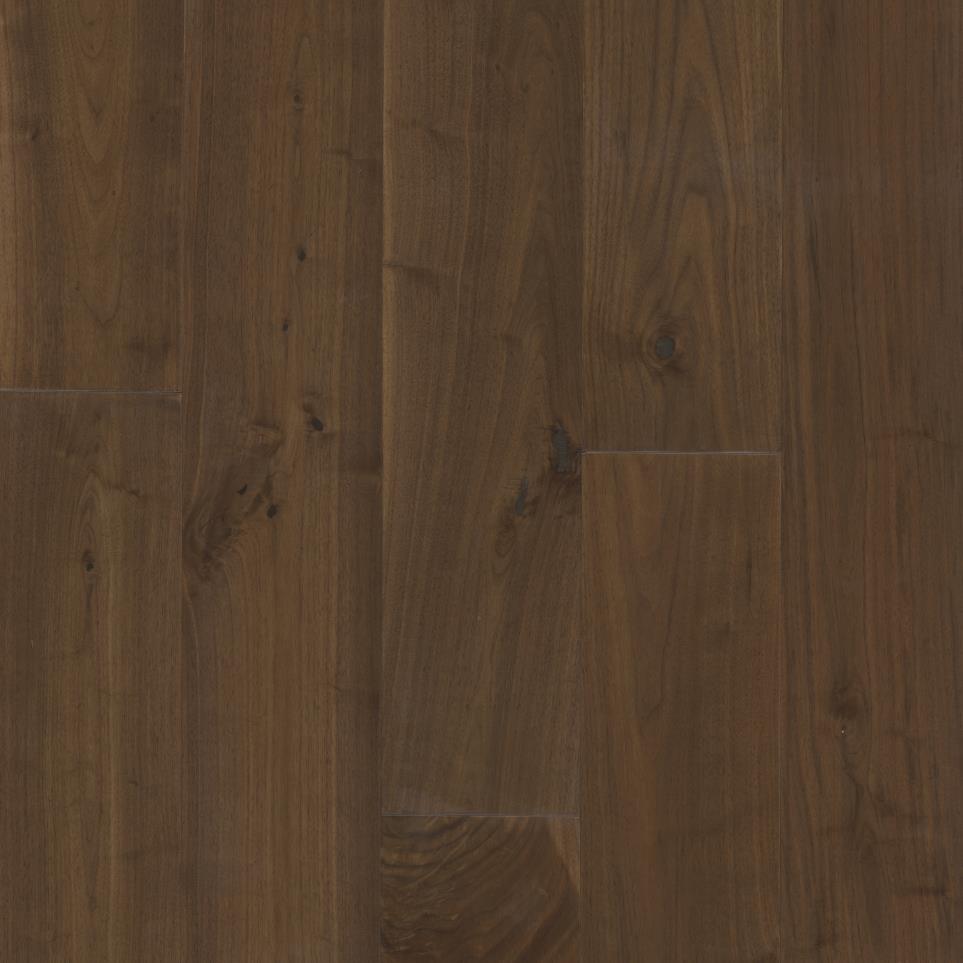Walnut wood flooring is described as elegant because of its dark, dramatic look yet it's also incredibly durable.
We know the drill—you're shopping for a hardwood floor that you'll love for years to come. But wouldn't the icing on the cake be seeing your neighbors' speechless reaction when you walk them through your finished remodel? Black walnut flooring can do just that, especially when it's installed in open-concept spaces and rooms with plenty of natural light. Walnut wood flooring is often described as elegant because of its dark, dramatic look that's impossible to miss. It's also incredibly durable and will take your constant houseguests and busy lifestyle in stride.
Ready to create a pro/con list to help you make the big decision? Walnut wood flooring has a lot to offer, including:
A few of the drawbacks that may come with walnut floors:
If you're looking to make a dramatic change to your floor, walnut hardwood can help! Whether your tastes lean modern, rustic, or even eclectic, walnut flooring can work as a beautiful complement. Its dark chocolate coloring is accented with deep purple-hued grain that ranges from uniform lines to curvy waves. Plus, no need to worry about covering those big bay windows in the living room, because although exposure to light can cause the richness of walnut hardwood to fade over time, the result is an alluring honey hue.
To get the most life from your walnut wood flooring, be thoughtful about routine maintenance and proper spot cleaning. Sweep or vacuum them weekly to remove any dirt, dust, and general debris that's collected. Letting it build up can actually increase the risk of scratches and scrapes. You also want to avoid letting liquids linger. If a spill occurs, quickly wipe it up and only use cleaning products as instructed by the manufacturer.
Buying hardwood flooring is a true investment and one that most homeowners don't take lightly. You want to know that what you're spending your hard-earned money on is going to last. Thankfully, walnut hardwood flooring offers long-term value, providing decades of beauty and support to you and your family.
Like virtually everything, though, its lifespan is also influenced by the choices you make, starting with the quality of the materials used and how the planks are installed. Professional installers are your best bet. Qualified pros not only have the slew of tools necessary but also the experience and knowledge to get the job done right—and without voiding your warranty.
As you decide what type of flooring to install, it's important to know how each option stacks up to the activity level in your home. The good news is that walnut flooring adds character and richness to the room while also withstanding your kids' rowdy play and the dogs' incessant pacing.
Since walnut hardwood does have a moderate density, it's still possible to cause a scratch or dent by dropping something at just the right angle or dragging a sharp or heavy object across the planks. It's a good idea to place doormats and rugs in the spots most often used as a layer of protection.
Though walnut is considered a softer variety of hardwood, it's still capable of supporting the busiest lifestyles. Don't be afraid to put walnut hardwood flooring in bedrooms, living rooms, and other common areas.
Yes! Walnut hardwood floors can offer a touch of drama with their deep brown coloring. Like all hardwoods, walnut is strong and resilient, which are great traits for homeowners searching for a long-term flooring investment.
Unstained walnut hardwood floors have a dark brown hue. Planks cut from the outer sapwood will often showcase light brown and blond streaks, which can work well in modern, artsy spaces. Planks from the inner heartwood usually include gold and almost purple overtones that perfectly complement your rustic look.
Flooring America collects data when you visit our website as described in our Privacy Policy. By continuing to browse, you accept and agree to our enhancing your experience with cookies. Learn more.
